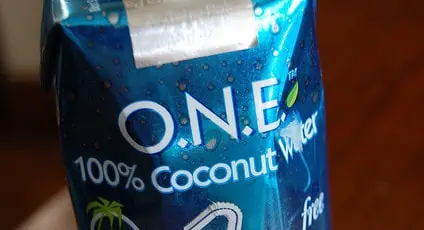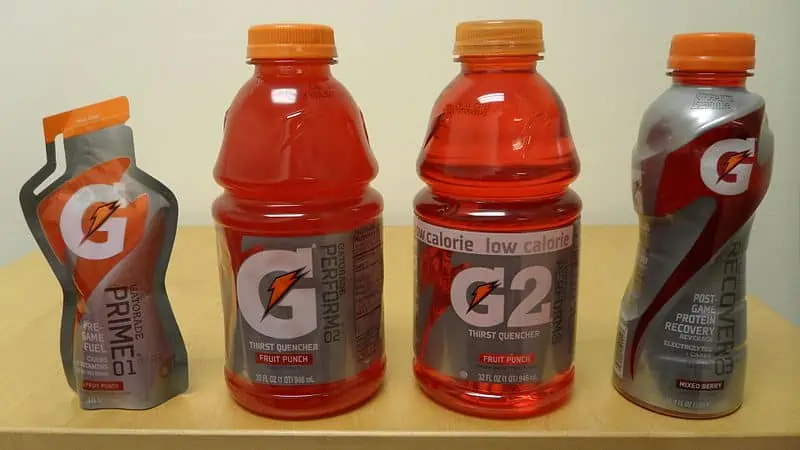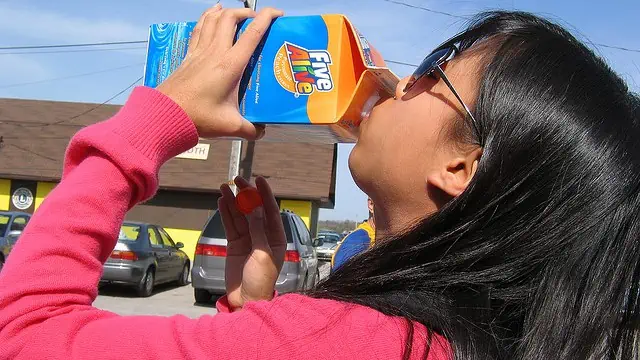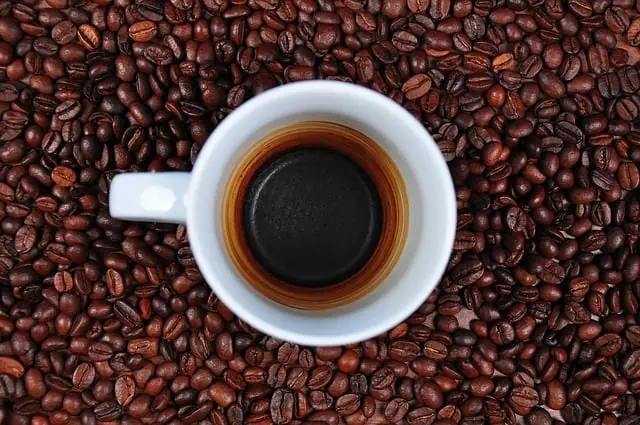The Heat Is On – Ideas for Movers to Stay Hydrated
Posted in: I'm a Mover, OperationsWe as movers are no strangers to sweat. Gatorade, then, can seem as integral to the job as a hand truck. Especially now, with the mercury erupting, we have to know how to keep our energy up and our internal cooling systems running – right through to the end of the day.
But when the morning begins to heat up… under the scorching midday sun… in the eleventh moving hour – is Gatorade the best way to go? We want to be at our healthy, hydrated best throughout the day. So this month we do a little digging into the methods and myths of healthy replenishment (including that evening-time after-work beer).
So without further procrastination we offer this wellspring of information as a source of inspiration for combating our daily perspiration. (Sorry, we just had to say it!)
Dehydration: how fast and why not
Do we really have to be worried about dehydration on the job? A bit of Fitness Q&A on MedicineNet.com gives us the low-down:
- A loss of just 1% to 2% of body weight (in sweat) begins to compromise cardiovascular, body temperature regulation, and muscular function, and can lead to decreases in aerobic power. For example, heart rate rises an additional three to five beats per minute for every 1% of body weight loss.This means for a 175-pound person, a loss of just 1.75 pounds – less than a quart of water and sweat – can mean the beginning of the slowdown.
- Muscle endurance and maximal aerobic power decreases when 3% to 4% of body weight is lost. Slightly more than 2% loss of body weight can result in as much as a 35% to 48% reduction in physical work capacity.So for the same 175-pound mover this 2% loss of body weight translates into a half-gallon of sweat, give or take. Sounds like a lot, but read what this article on Hammer Nutrition tells us: “ On average, you lose about one liter (approx 34 ounces) of fluid per hour of exercise. Extreme heat and humidity can raise that amount to three liters in one hour.” Yikes!
- Dehydration of greater than 3% of body weight increases the risk of developing exertional heat illness (heat cramps, heat exhaustion, or heat stroke). Heat illness is common in sports and can occur after just one hour of intense exercise in the heat.Moving may not be a sport, but obviously it doesn’t take long to lose that weight – and feel the effects – when we’re moving furniture in 90/90 heat and humidity.
So we need to stay hydrated. That’s no secret. But how do we do it? What works best? All that sweat means we’re losing salt and other minerals as well as water so we should guzzle that sports drink, right?
Hold your isotonic horses, cowboy.
Keeping Our Fluids Up: what works?
Our friends over at competitor.com offer some input on the subject:
“Most sports drinks on the market are what sports scientists call isotonic, which means they contain a carbohydrate solution that is at 6-8% concentration. These drinks are in the middle of the spectrum in terms of absorption rate, with water being the most readily absorbed (hypotonic) and something like fruit juice, being greater than 8% sugar concentration (hypertonic) and therefore the least absorbable. Because the sugar concentration of most sports drinks is higher than that of most body fluids, they are not readily absorbed into the blood stream and are thus not optimal for the purpose of hydration.”
Michael F. Bergeron, Ph.D., FACSM offers some hydration advice here for long workouts, which certainly pertains to our typical summer day moving jobs. “Grab a beverage that has up to 500 mg sodium per 16 oz, and around 6 percent carbs (less than 28 g per 16 oz). Any more and your body will pull water from your blood to your gut for digestion.”
Both sources tout the idea of keeping carb intake down; too much and the body has to work to digest them which then slows us down. No wonder it’s so hard getting back on track after wolfing down that lunchtime pizza!
Considering the sugar content of soda (not surprising) and fruit juice (maybe surprising) and we can cross off two more options in our quest for peak hydration (though diluted fruit juice is a recommended option by some, as we will see).
Caffeine is a Diuretic: True or False?
True. But recent opinion seems to be going against the grain of conventional wisdom that says coffee and tea are dehydrating. We believe the jury is still out.
This article from our friends Down Under appears to want to tell us the “coffee drains your system” idea is a myth, but the tepid wording implies a different conclusion.
“If you drink coffee regularly and don’t drink too much it shouldn’t dehydrate you,” reads the headlining claim. Lots of wiggle room in there. In any case, the amount of liquid we need to gulp down on any given summer work day puts coffee right out of the equation. If you like a cup o’ joe in the morning, by all means go for it. But we don’t suggest replacing that hourly liter or two of sweat-loss with Starbucks.
Coconut Water: Nature’s Gatorade?

The benefits of coconut water have been slathered all over the websites and magazines of the health-conscious world. This article (noticeably devoid of links to back up any of its statements) wants to destroy the hype, but still, we can’t ignore certain facts. “The typical coconut water has 30 to 70 milligrams of sodium and 9 to 12 grams of sugar per 11.2-ounce container — saltier but much less sweet than most fruit juices. The same amount of apple juice has 10 milligrams of sodium and three times as much sugar: 33 gram,” we are told. (This writer, however, has a much easier time guzzling diluted apple juice than coconut water.)
As for a comparison to sports drinks? This WebMD article tells us:
“(Coconut water) has fewer calories, less sodium, and more potassium than a sports drink. Ounce per ounce, most unflavored coconut water contains 5.45 calories, 1.3 grams sugar, 61 milligrams (mg) of potassium, and 5.45 mg of sodium compared to Gatorade, which has 6.25 calories, 1.75 grams of sugar, 3.75 mg of potassium, and 13.75 mg of sodium.”
Prevention Magazine gives us a quick head-to-head comparison of the two, with coconut water winning handily.

Forbes, however, sums it up nicely: “Although coconut water is rich in potassium, it is low in carbohydrates and sodium- two potential issues for those who do endurance training or prolonged aerobic workouts… when you exercise three hours or longer in the heat or adverse conditions, your body requires higher levels of simple carbohydrates and electrolytes not adequately found in coconut water. If you sweat a lot, neither coconut water or typical sports drinks will have enough sodium, potassium or sugar to keep you from falling behind the curve. Having a sports bar, salty pretzels, a banana, raisins or some yogurt will likely give you the added electrolytes to refill your body stores.”
Good. I never could get used to the taste of that coconut water stuff.
The Upshot: a hydrating continuum
Our friends at competitor.com sum up the question when you should be drinking water versus when you should be drinking sports drinks or an electrolyte beverage quite nicely. Yes their focus is on running but the science and the reasoning apply to us as well.
“Before and during a run, rehydration should be your main priority. When training in warm conditions, rehydration will allow you to maintain fluid balance and stay cool. Accordingly, your best choice before and during your run would be water, a heavily diluted sports beverage, or water with electrolytes. Your best choice after a workout is a drink that contains a good amount of sugars, electrolytes and possibly some protein.”
Interesting, that bit about diluted sports drink. This makes sense especially in the run-up to lunch. Cutting back on those sports drink carbs leaves room – and energy – for our system to digest our food (okay, our pizza) without sucking our blood and our muscles completely dry. Try pouring that 500mL Powerade into a jug of water.
Stamina: advice from a woman who knows
Yes, we can carry furniture and haul boxes around all day in the blazing heat. How does that compare to completing an Ironman triathlon? We don’t know, exactly. But we figure it makes sense to listen to an Ironman… make that Ironwoman… who also happens to be an exercise physiologist and nutrition scientist with almost two decades working in the field.
Dr. Stacy Sims did an interview with Outside magazine last year and laid her hydrating cards on the table.
Her simple and unconventional claim: “Not only are most of the sports nutrition drinks on the market not optimized for best hydration, but many of them are actually impeding athletes’ performances.”
Whoa. After all this we’re being told to can the Gatorade?
Looks that way. Sports drinks, by and large, she says “have too high a concentration – osmolality – and they pull water out of the system making you more dehydrated.” Too much in the way of carbs, much like what our previous sources have hinted at. “Sports drinks with a carbohydrate concentration of five percent or more and with fructose or maltodextrin actually lead to dehydration,” she adds.
Her research goes deep, but she boils it down to this:
“Food in the pocket, hydration in the bottle.”
In other words, drink plenty of water, dilute your juice or sports drinks if you must. And EAT.
Sounds pretty simple to me.
Your Turn
We are not robots or or lab rats. We are people. Movers, kicking ass on the job every day. You might sweat up a storm and need to suck down some sports drink every ten minutes. Or you might have an easier time keeping your internals in balance. Be your own judge.
But however you decide to do it, just be sure to keep that cooling system running. The alternative can be unpleasant if not devastating.
Help out your fellow mover and let us know how you stay hydrated by leaving a comment.
___
Photo credit to Rocksee






